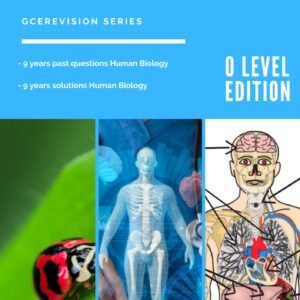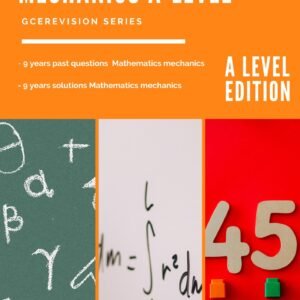SECTION A: DRAMA
WILLIAM SHAKESPEARE: JULIUS CAESAR
- Read the following passage and answer the questions below it.
A: The gods today stand friendly, that we may, Lovers in peace, lead on our days to age!
But since the affairs of men rest still incertain, Let’s reason with the worst that may befall.
If we do lose this battle, then is this 5
The very last time we shall speak together: What are you then determined to do?
B: Even by the rule of that philosophy,
By which I did blame Cato for the death
Which he did give himself, -I know not how, 10
But I do find it cowardly and vile,
For fear of what might fall, so to prevent
The time of life,-arming myself with patience,
To stay the providence of some high powers,
That govern us below.
15
(a) Identify speakers A and B (2 marks)
(b) Where are they? (1 mark)
(c) State the philosophy referred to by speaker B in line 8 (3 marks)
(d) Explain the meaning of the following words and expressions as used in the passage
- Lovers (L2)
- still incertain (L3)
- vile (L11)
- stay the providence (L14) (8 marks)
(e) Give an account of what happens before this scene. (11 marks)
(Total = 25 marks)
- Read the following passage and answer the questions below it.
Read the following passage and answer the questions below it.
He is a great observer, and he looks
Quite through the deeds of men. He loves no plays,
As thou dost, Antony; he hears no music ; Seldom he smiles, and smiles in such a sort
As if he mocked himself, and scorned his spirit 5
That could be moved to smile at anything.
Such men as he be never at heart ‘s ease
Whiles they behold a greater than themselves,
And therefore are they very dangerous.
I rather tell thee what is to be feared 10
Than what I fear, for always I am Caesar. Come on my right hand, for this ear is deaf, And tell me truly what thou thinkst of him.
(a)
(i)Who is speaking? (1 mark)
(ii)To whom is he speaking? (1 mark)
(b)
(i)Name two other characters present when this speech is made. (2 marks)
(ii)Who is the “he” being referred to by the speaker? (1 mark)
(c) Explain the following words and expressions as used in the passage.
(i) Seldom he smiles (L4)
(ii) scorned his spirit (L5)
(iii) never at heart’s ease (L7)
(iv) behold (L8)
(8 marks)
(d) What reasons does the speaker give for disliking the person referred to in the above speech? (4 marks)
(e) Bring out two aspects of the speaker’s character as seen in the passage. (2 marks)
(f) Give an account of the rest of the scene from which this passage is taken. (6 marks)
(Total = 25 marks)
SECTION B: AFRICAN LITERATURE
SHADRACH A. AMBANASOM: SON OF THE NATIVE SOIL
3. Outline the character of Umeitoh and the role he plays in the novel SON OF THE NATIVE SOIL
(25 marks)
4. Give a detailed account of Achamba’s trial in the Akan Traditional Council.What role does Abaago play during
the trial? (25 marks)
SECTION C: POETRY
SMITH AND WILKINS: THE SHELDON BOOK OF VERSE, BOOK 3
5. Read the following extract and answer the questions that follow.
But when these hours wane,
Indoors they ponder, scared by the harsh storm Whose pelting saracens on the window swarm, And listen for the mail to clatter past
And church clock’s deep bay withering on the blast; 5
They feed the fire that flings a freakish light
On pictured kings and queens grotesquesly bright,
Platters and pitchers, faded calenders,
And graceful hour -glass trim with lavenders.
(a) Name the poet and the title of the poem from which this extract is taken. (2 marks)
(b) Explain the meaning of the following phrases as used in the passage
(i) hours wane (L1)
(ii) pelting Saracens on the window swarm (L3)
(iii) the mail to clatter past (L4)
(iv) platters and pitchers (L8) r .( 8 marks)
(c) What is the women’s general attitude towards death? (3 marks)
• (d) Pick out and name any TWO literary devices from the passage and show their effectiveness. (4 marks)
(e) Give an account of the rest of the poem, (8 marks)
(Total = 25 marks)
Turn Over
6. Give brief accounts of the poems “Into Battle” by Julian Grenfell and “Fife Tune” by John Manifold and bring
out their similarities. (25 marks)
7. Give a detailed account of the poem “To Daffodils” by Robert Herrick and bring out the poet’s attitude towards
death. (25 marks)
SECTION D: PROSE
GEORGE ORWELL: ANIMAL FARM
8. Describe any FOUR instances of humour in the novel ANIMAL FARM.
(25 marks)
9 Give any THREE instances in the novel ANIMAL FARM to show how the pigs deceive the other animals.
(25 marks)







